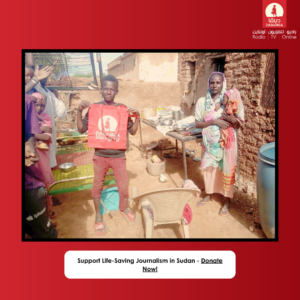Restored Sudan internet reveals footage of militia abuses
Sudanese activists have begun to publish hundreds of videos picturing the violence which took place against protesters during the authorities’ violent dismantling of the sit-in in front of the army command in Khartoum on June 3.
 RSF vehicles patrol empty streets of Khartoum (Social media)
RSF vehicles patrol empty streets of Khartoum (Social media)
Sudanese activists have begun to publish hundreds of videos picturing the violence which took place against protesters during the authorities’ violent dismantling of the sit-in in front of the army command in Khartoum on June 3.
The images and videos posted after the return of the internet services in Sudan on Tuesday revealed abuses by the Rapid Support Forces (RSF) such as sexual harassment, beatings with batons, and beating of demonstrators after humiliating them, as well as firing live ammunition and burning tents. The footage also showed bodies taken from the Nile after being thrown-in by troops who participated in dismantling the sit-in.
Many of the newly published videos were recorded by paramilitaries of the RSF that broke the sit-in. According to the head of the Legal Doctors Syndicate, Ahmed El Sheikh, 10 women and two young men were raped at the sit-in on Ramadan 29/June 3, El Jareeda Newspaper reported in its Khartoum edition.
El Sheikh said that the rape victims underwent psychological treatment and rehabilitation at Taha Baashar Centre and the Trauma and Injuries Centre of the University of Ahfad.
Rape victim suicide
He added that the syndicate formed teams to follow up those cases to avoid the occurrence of suicides, especially after one of the young women committed suicide after failing to meet the psychological and societal challenges she was exposed to.
El Sheikh announced that the syndicate suffered financial losses of billions of Pounds in the events of the sit-in, as a result of the burning of 10 tents used as clinics inside the sit-in headquarters, the destruction of medicines and medical devices, in addition to more than 20 latrines.
Internet restored
On Tuesday, Sudan emerged from a 38-day shut-down of the internet in the country. The shut-down was ordered by the ruling Transitional Military Council (TMC) citing reasons of ‘national security’ following the massacre during the break-up of the sit-in at the General Command of the army in Khartoum on June 3.
Our editorial independence means that we can continue to provide factual updates about political developments to Sudanese and international actors, educate people about how to avoid outbreaks of infectious diseases, and provide a window to the world for those in all corners of Sudan. Support Radio Dabanga for as little as €2.50, the equivalent of a cup of coffee.












 and then
and then